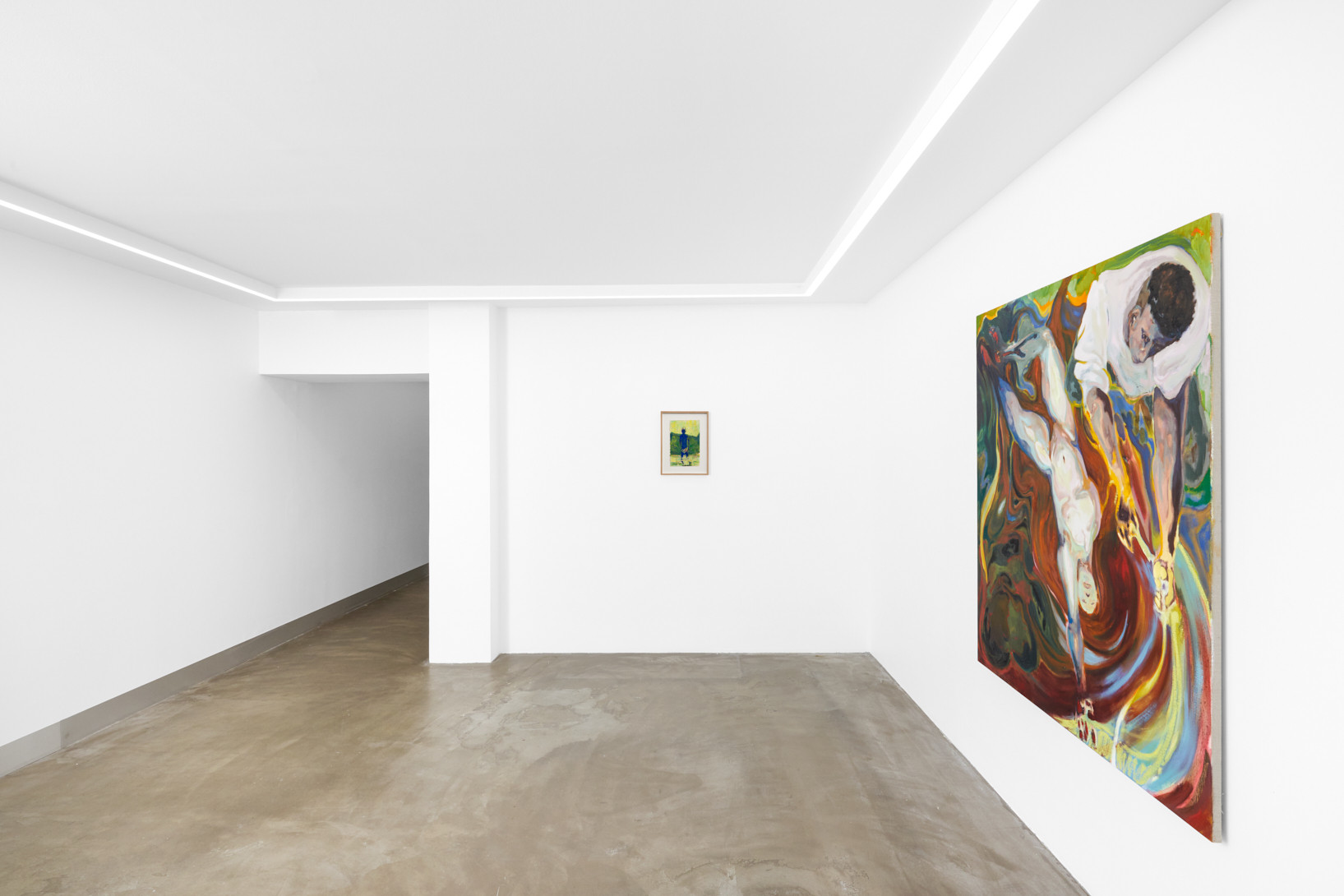
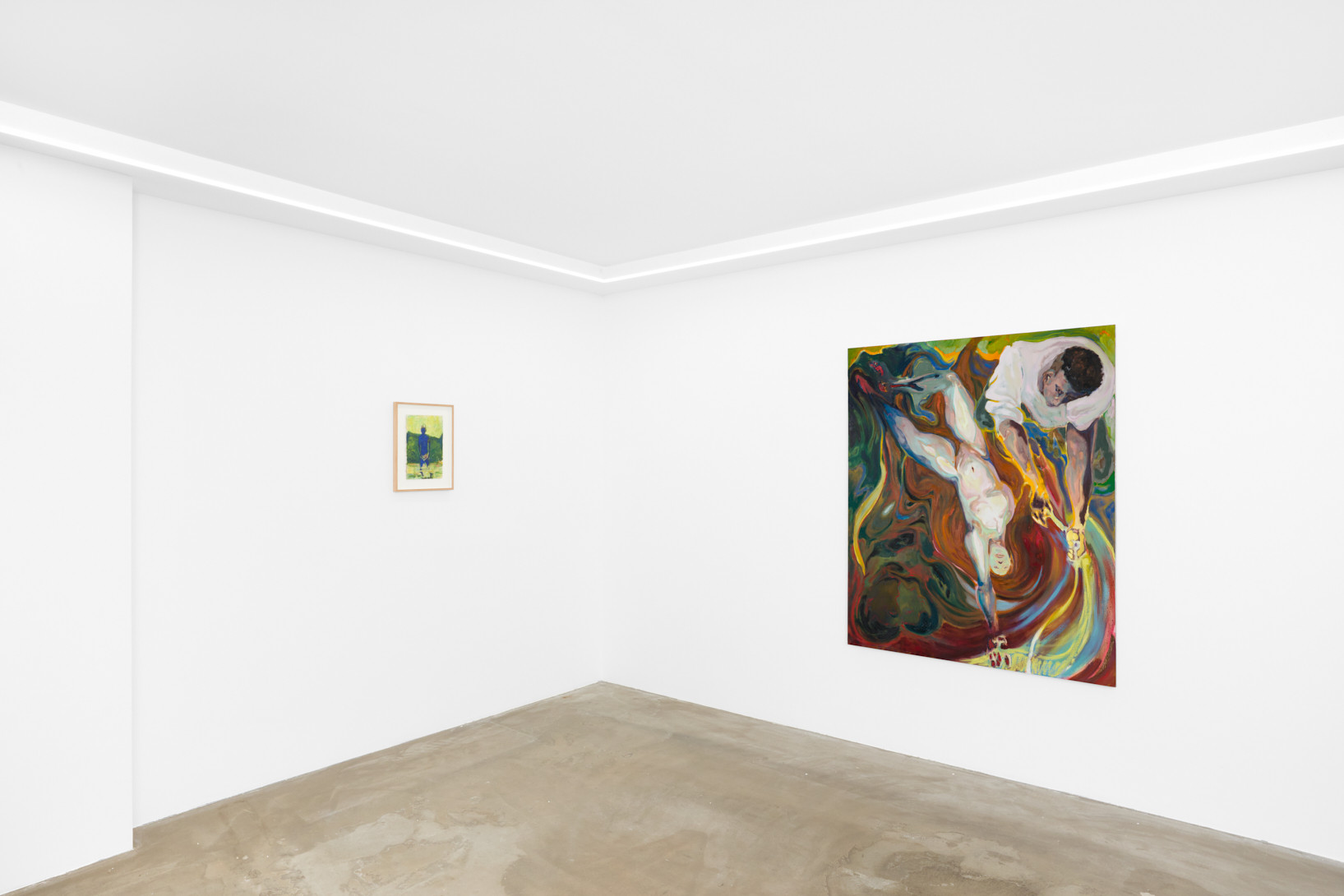
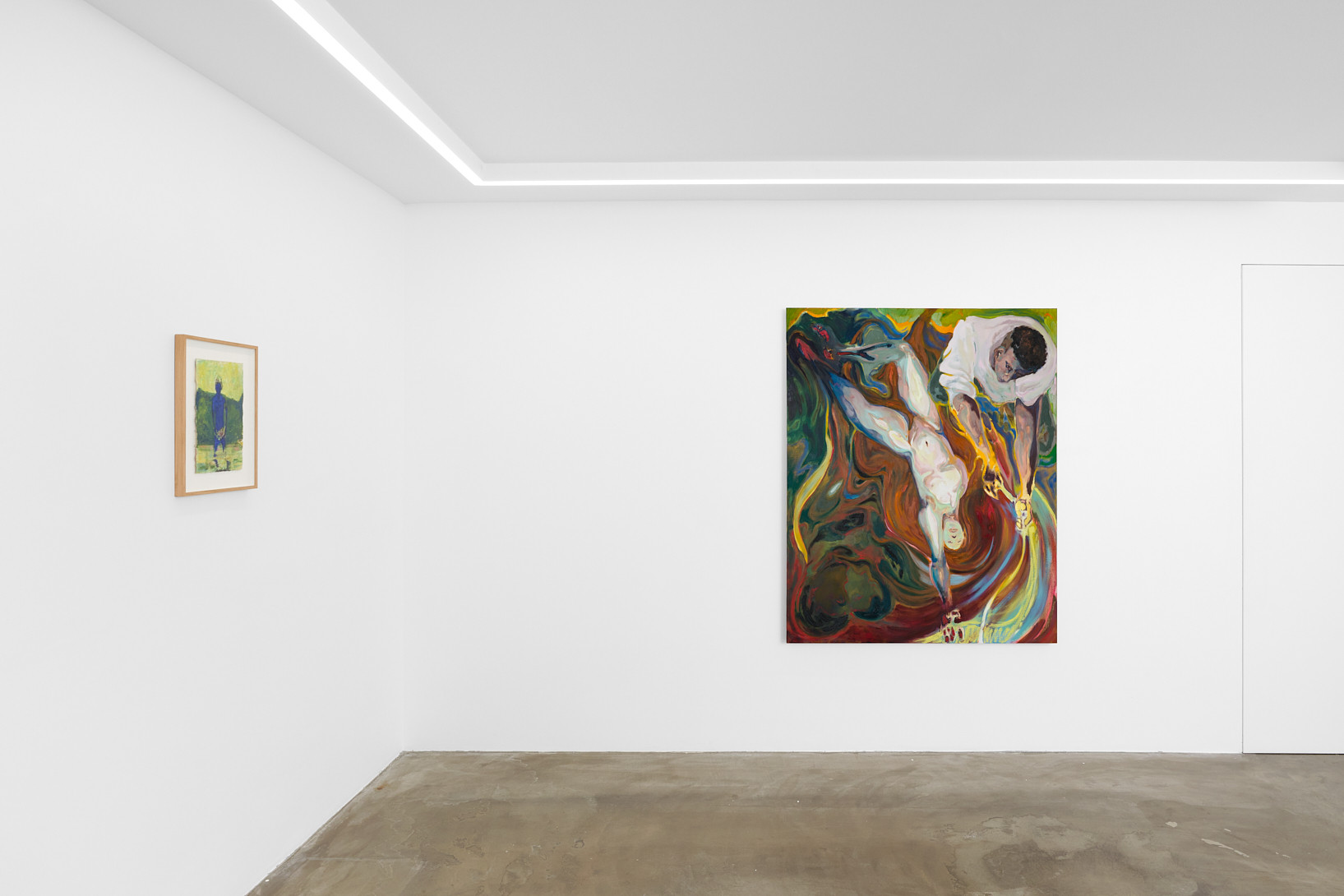
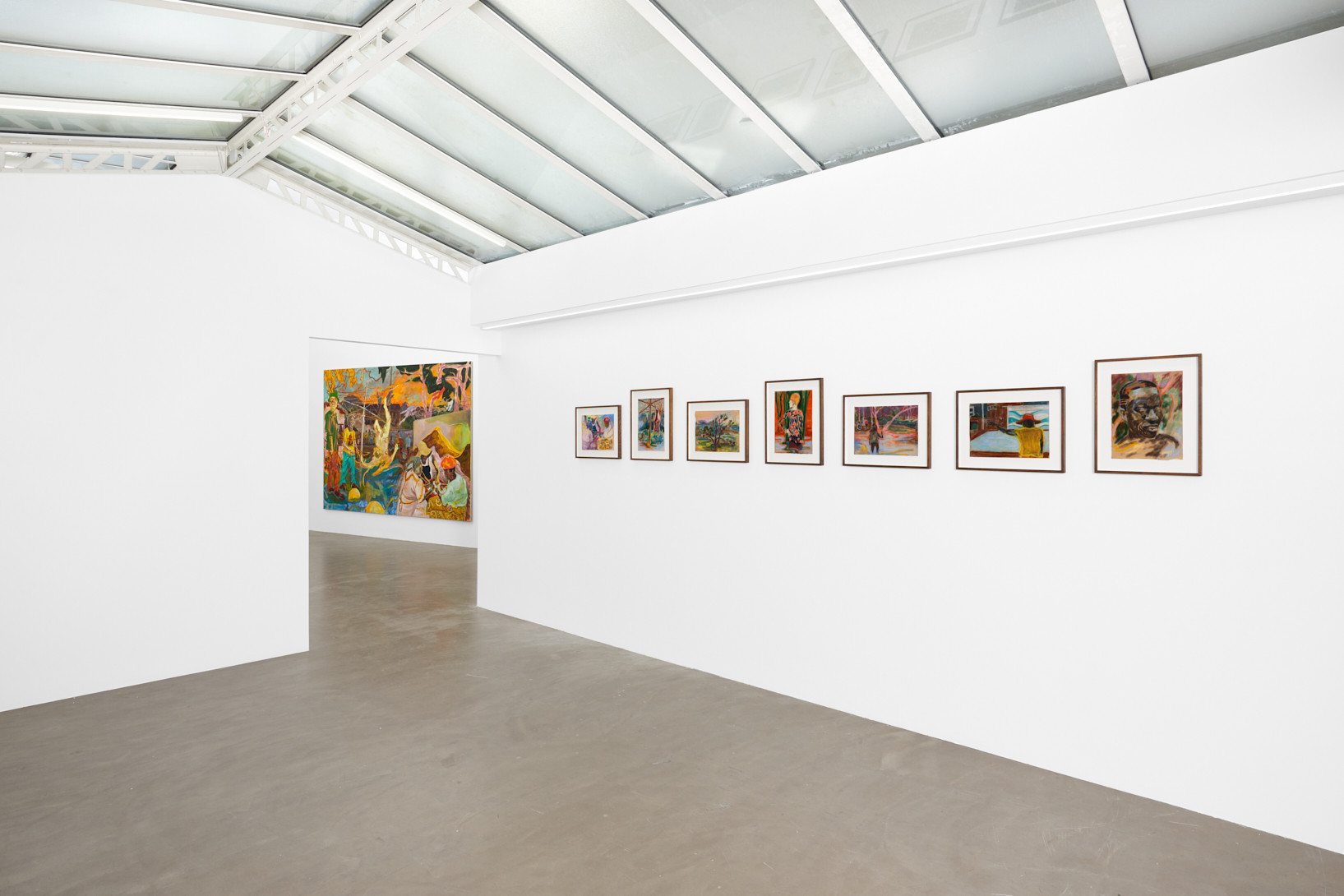
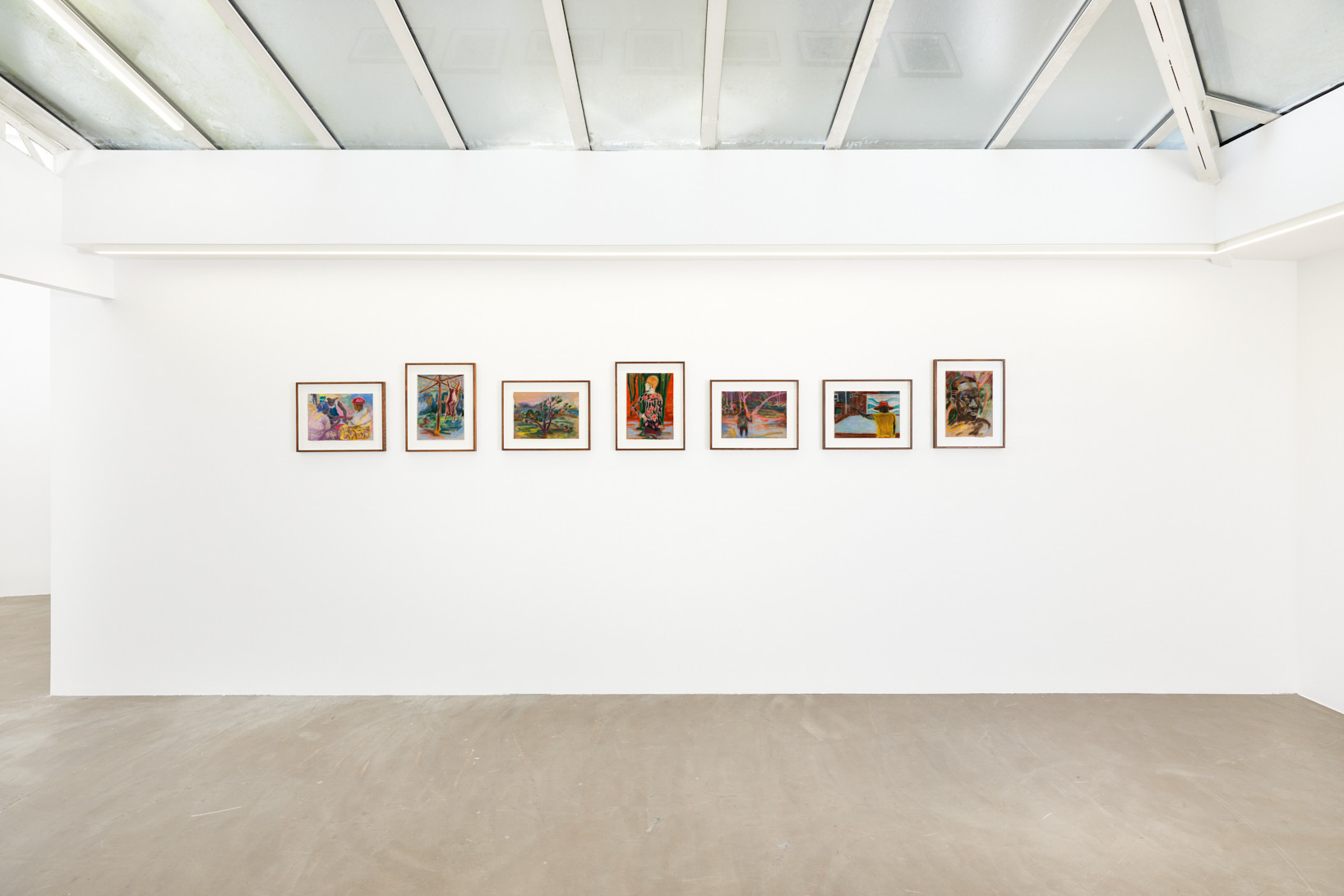
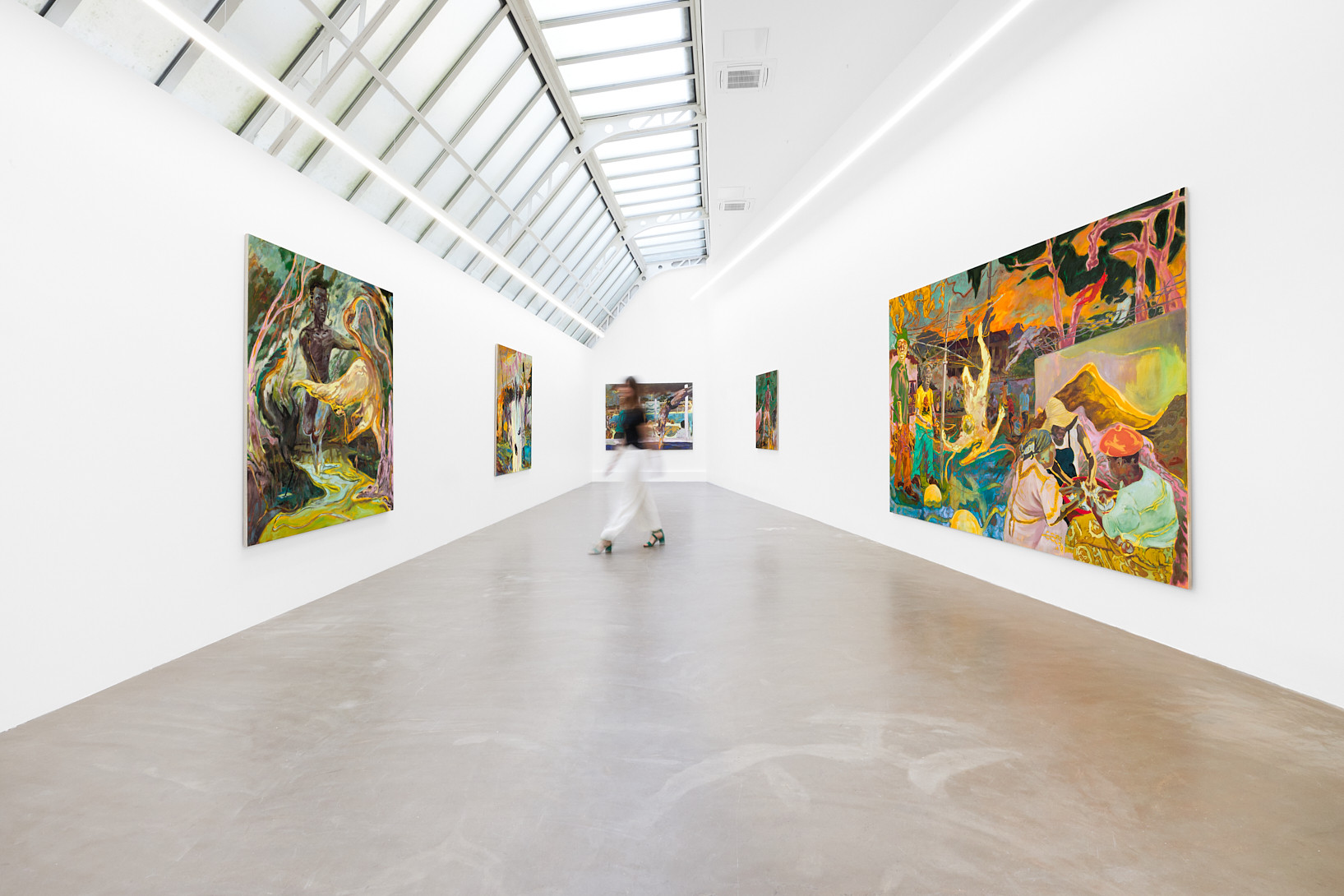
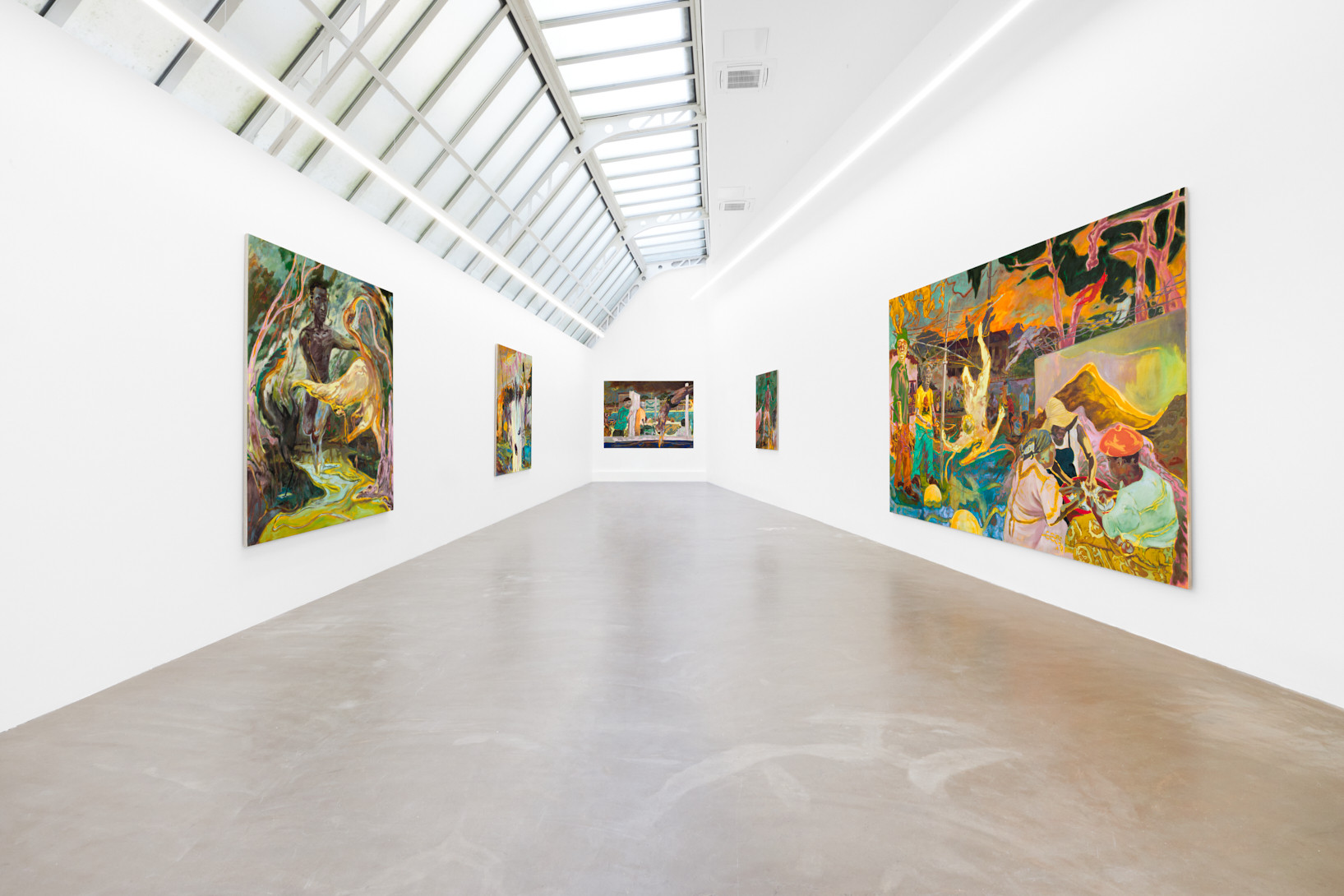
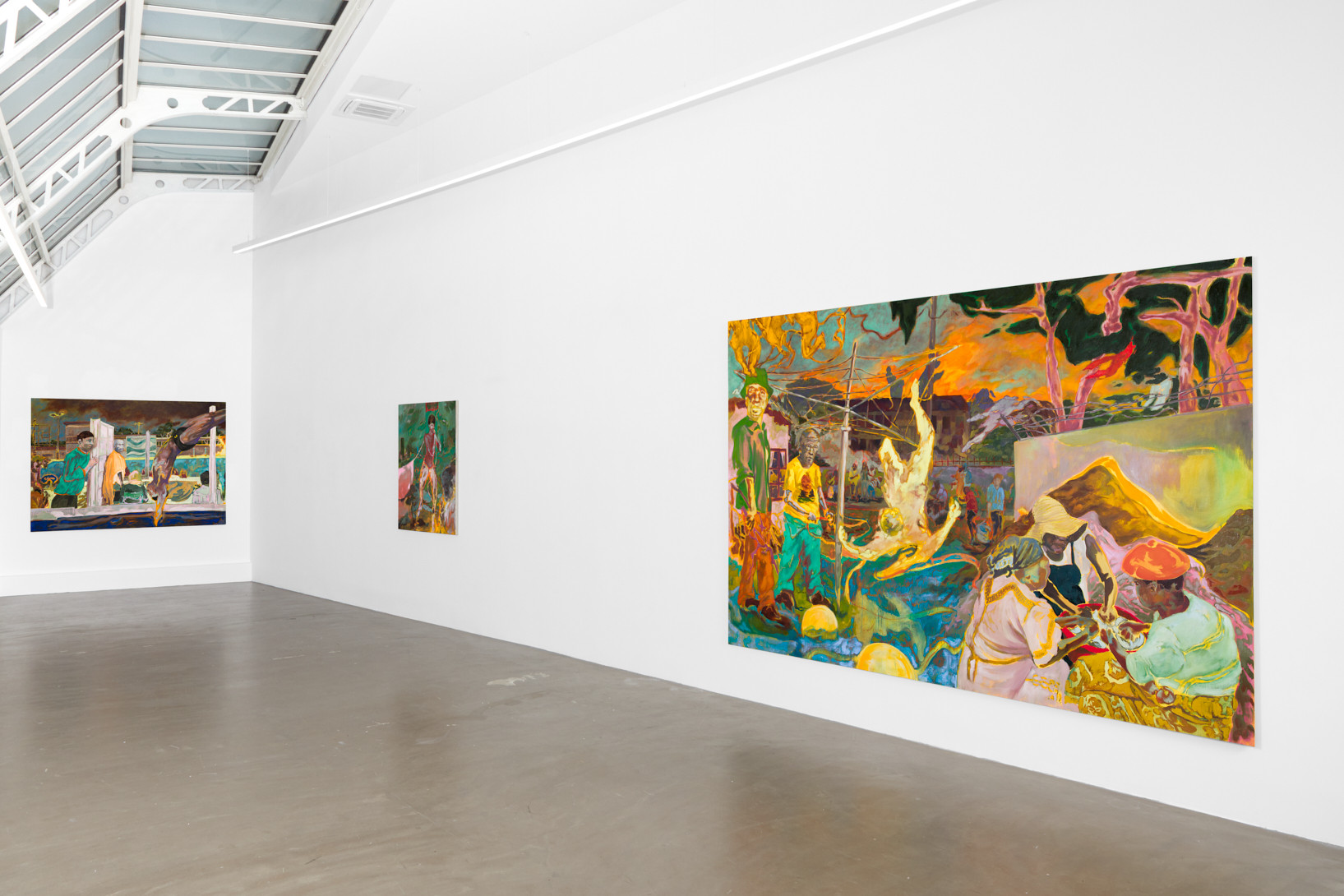
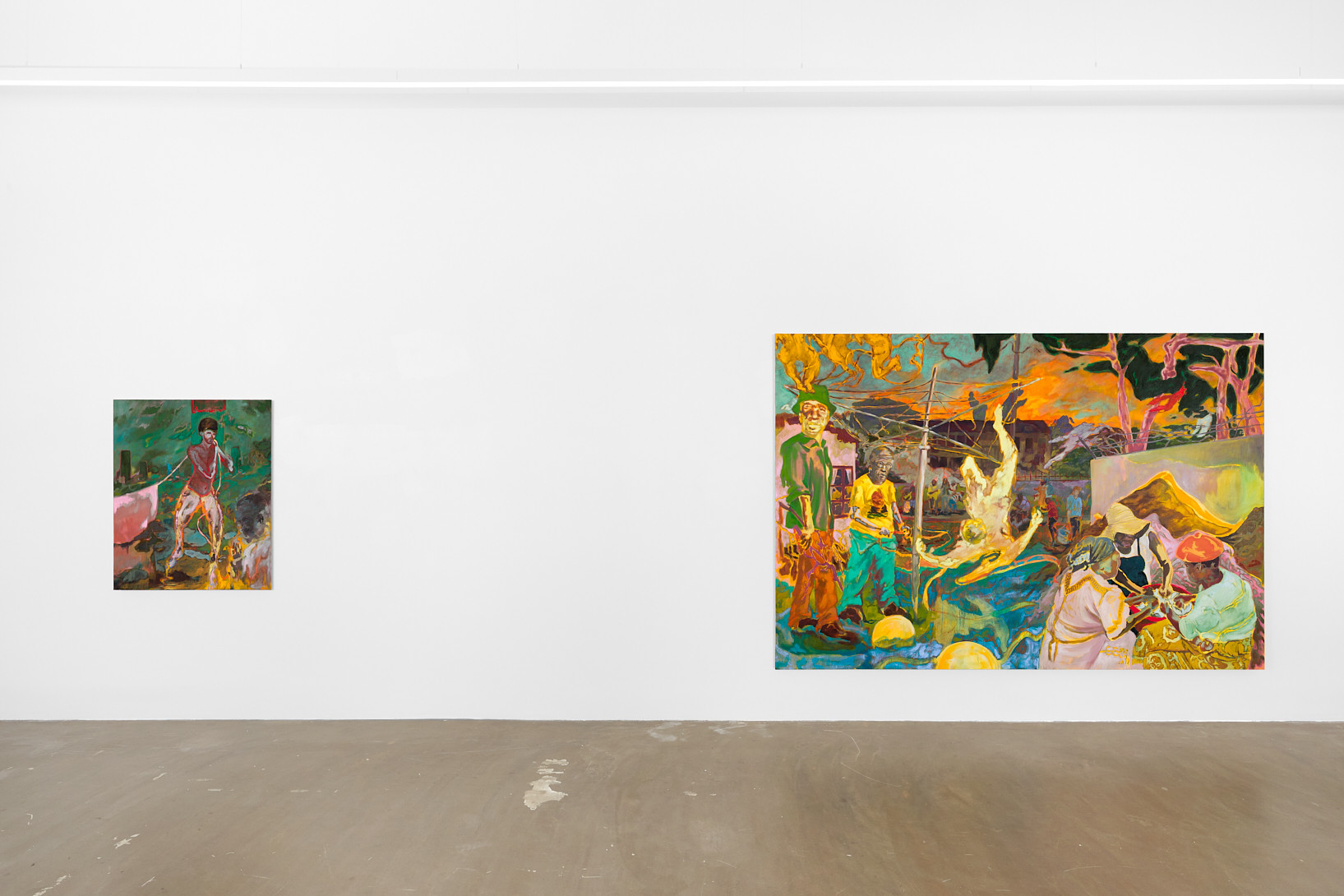
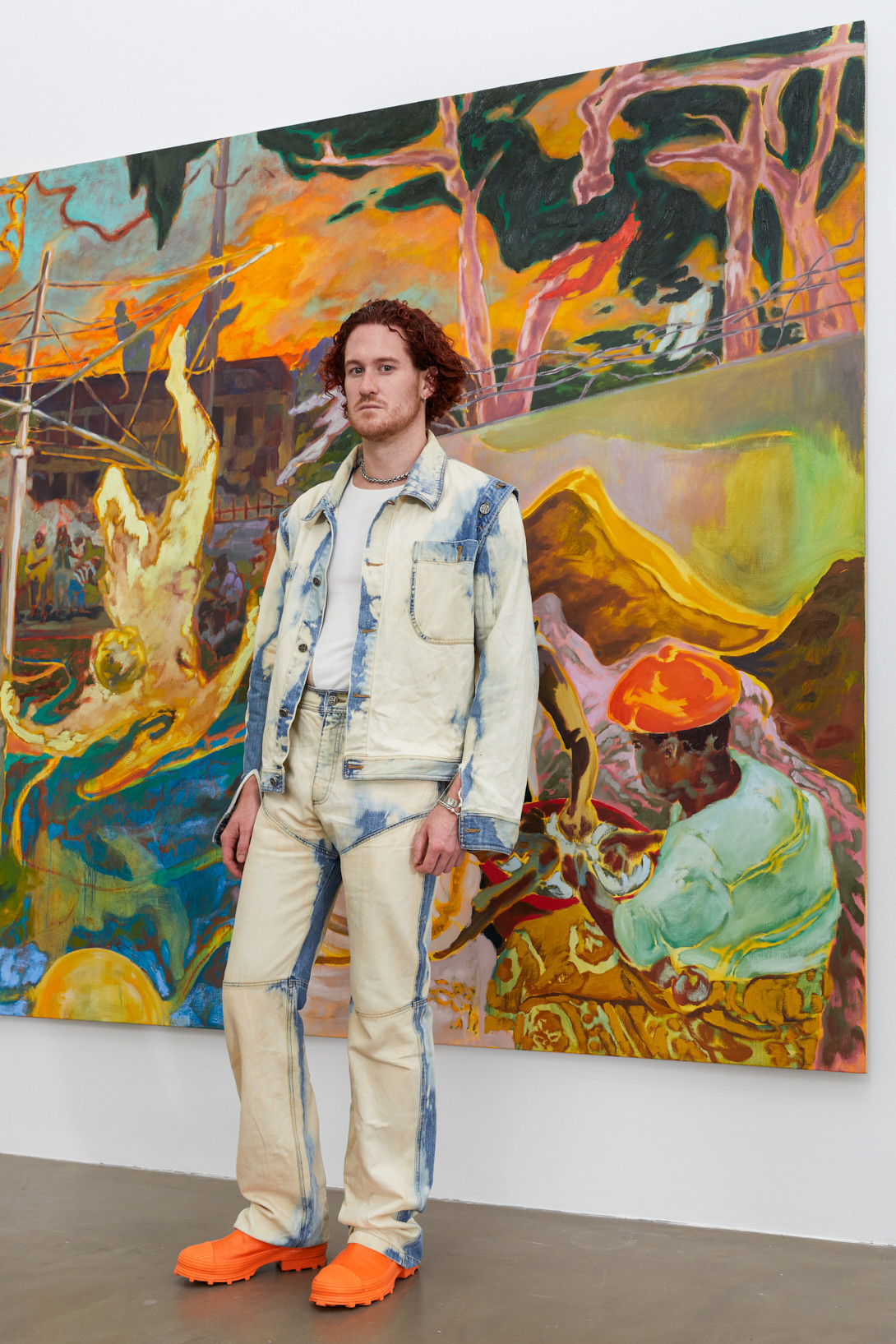
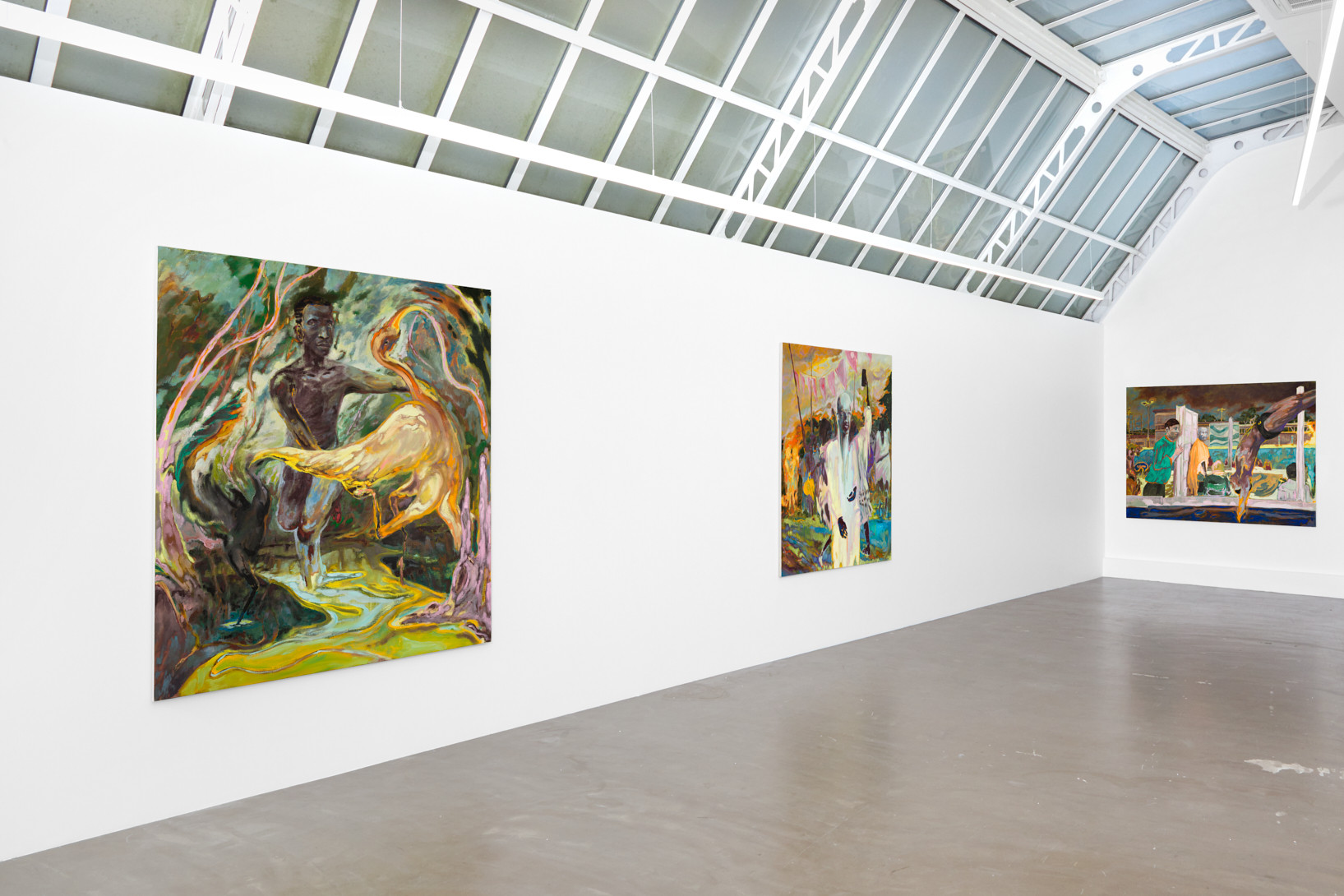
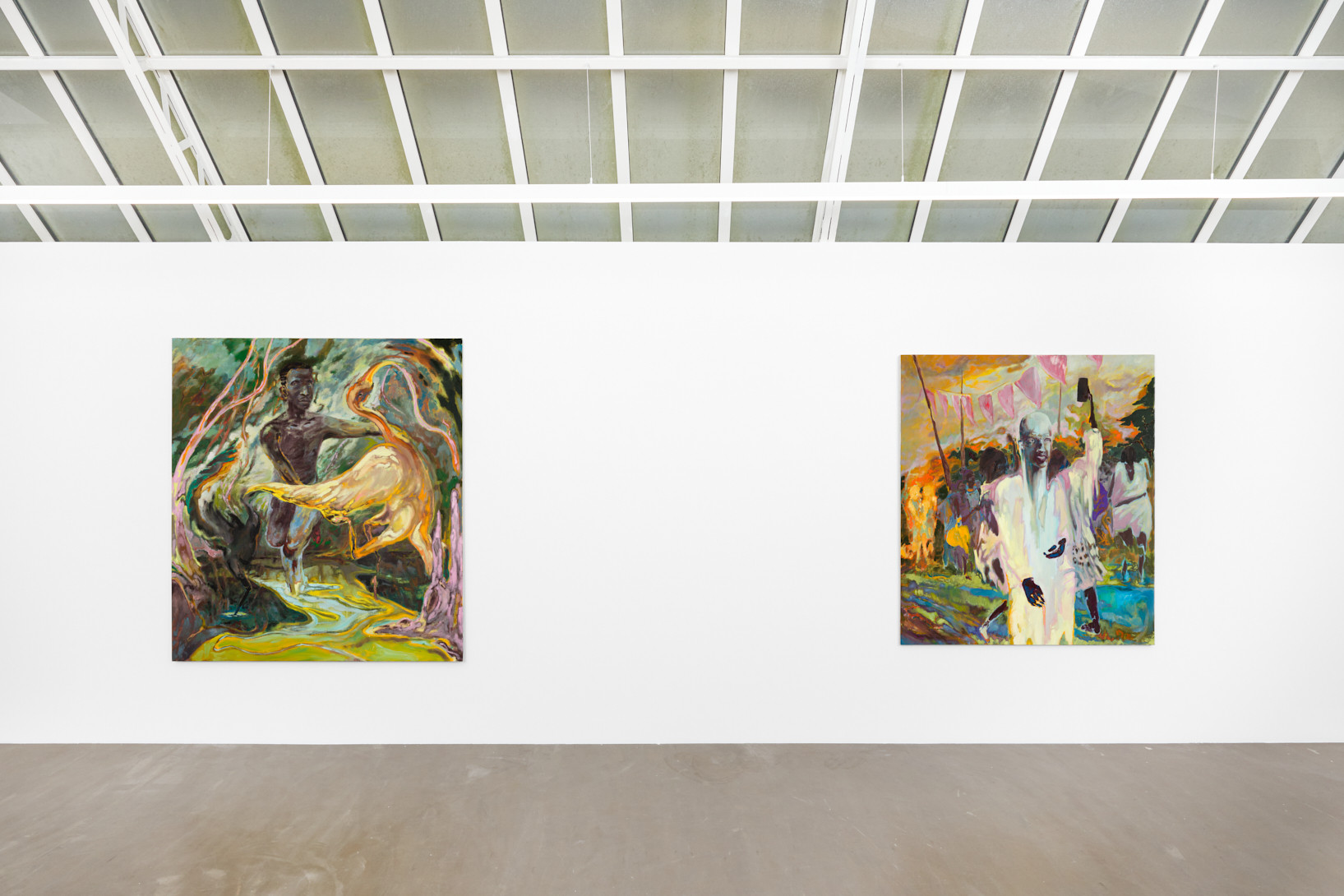
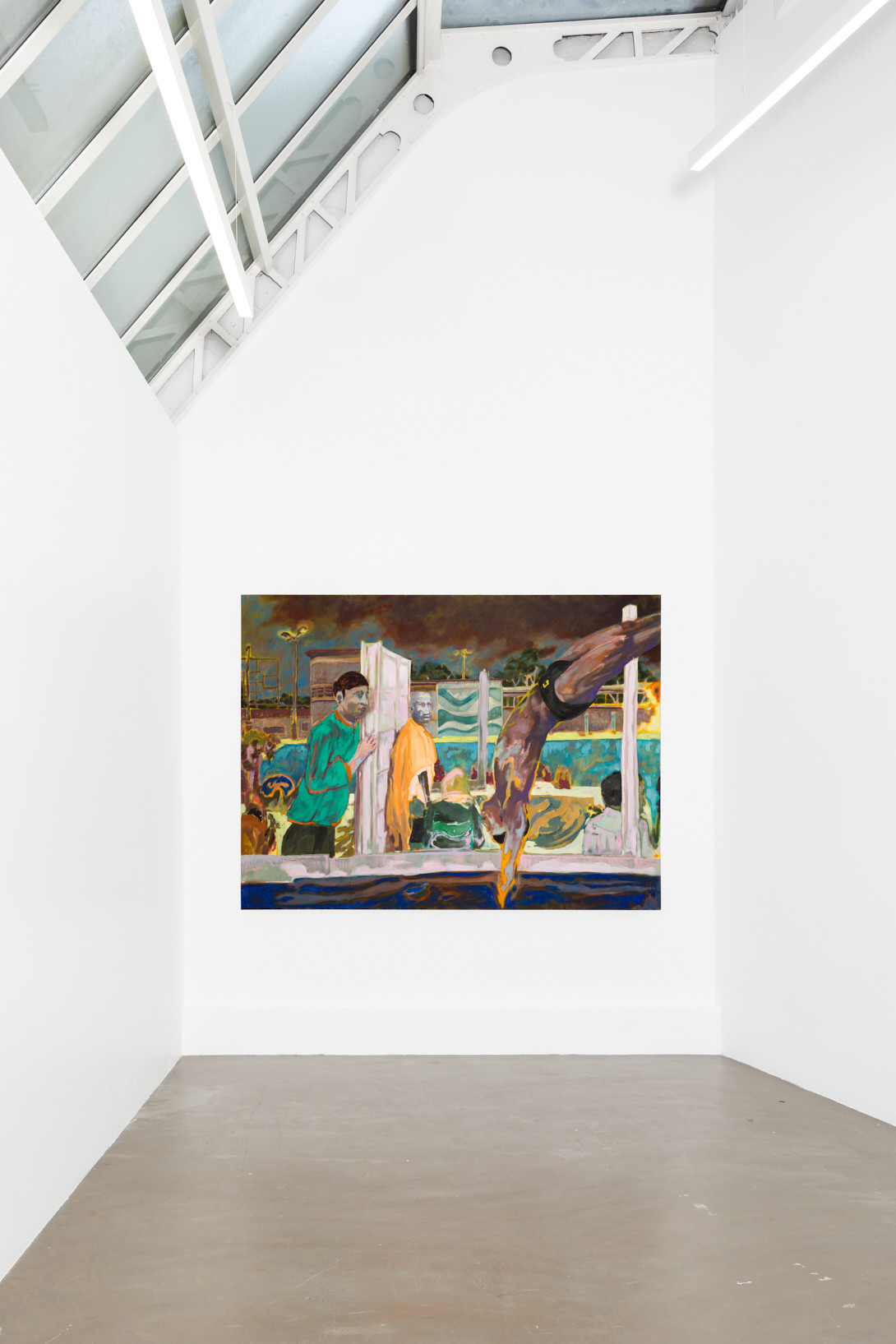
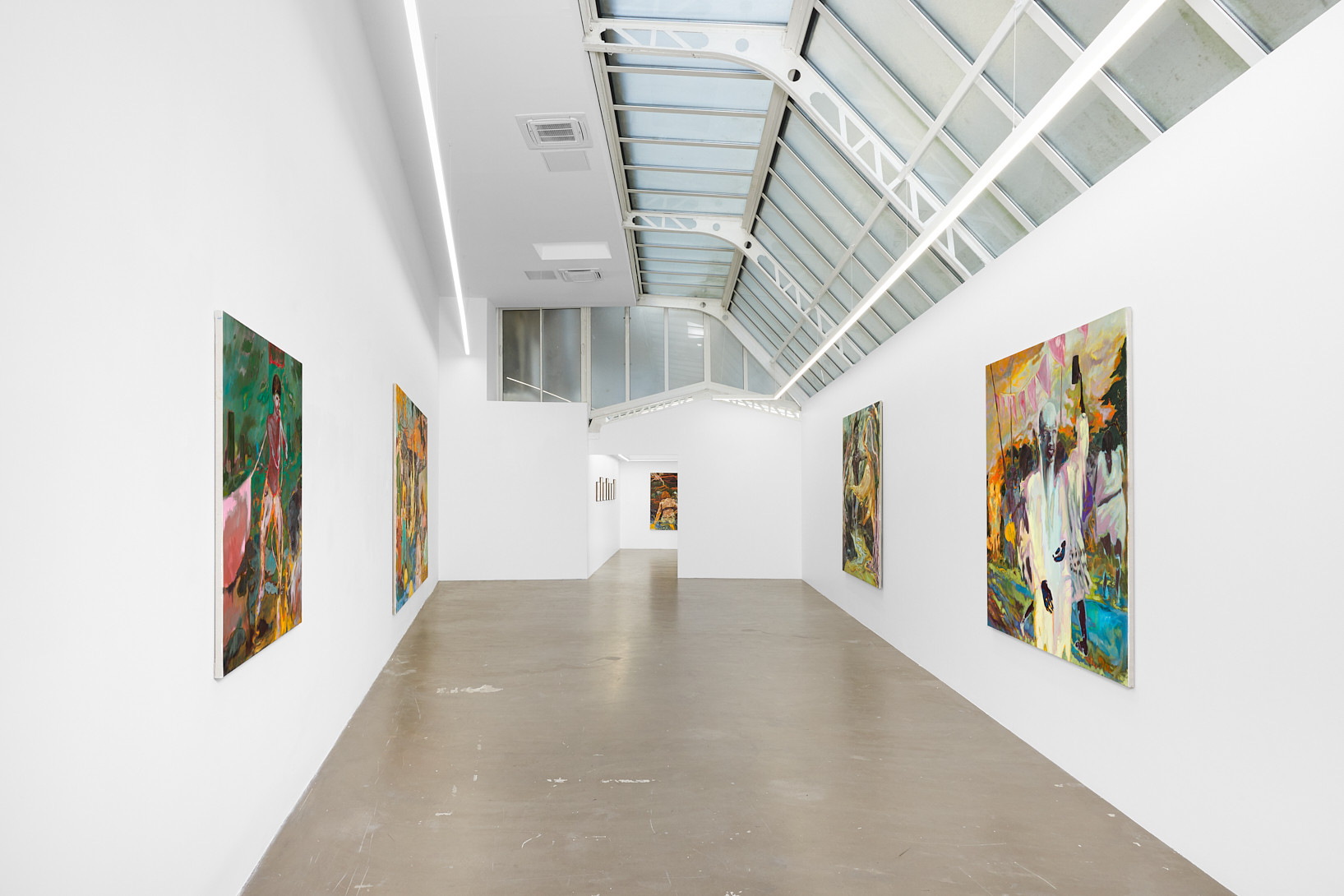
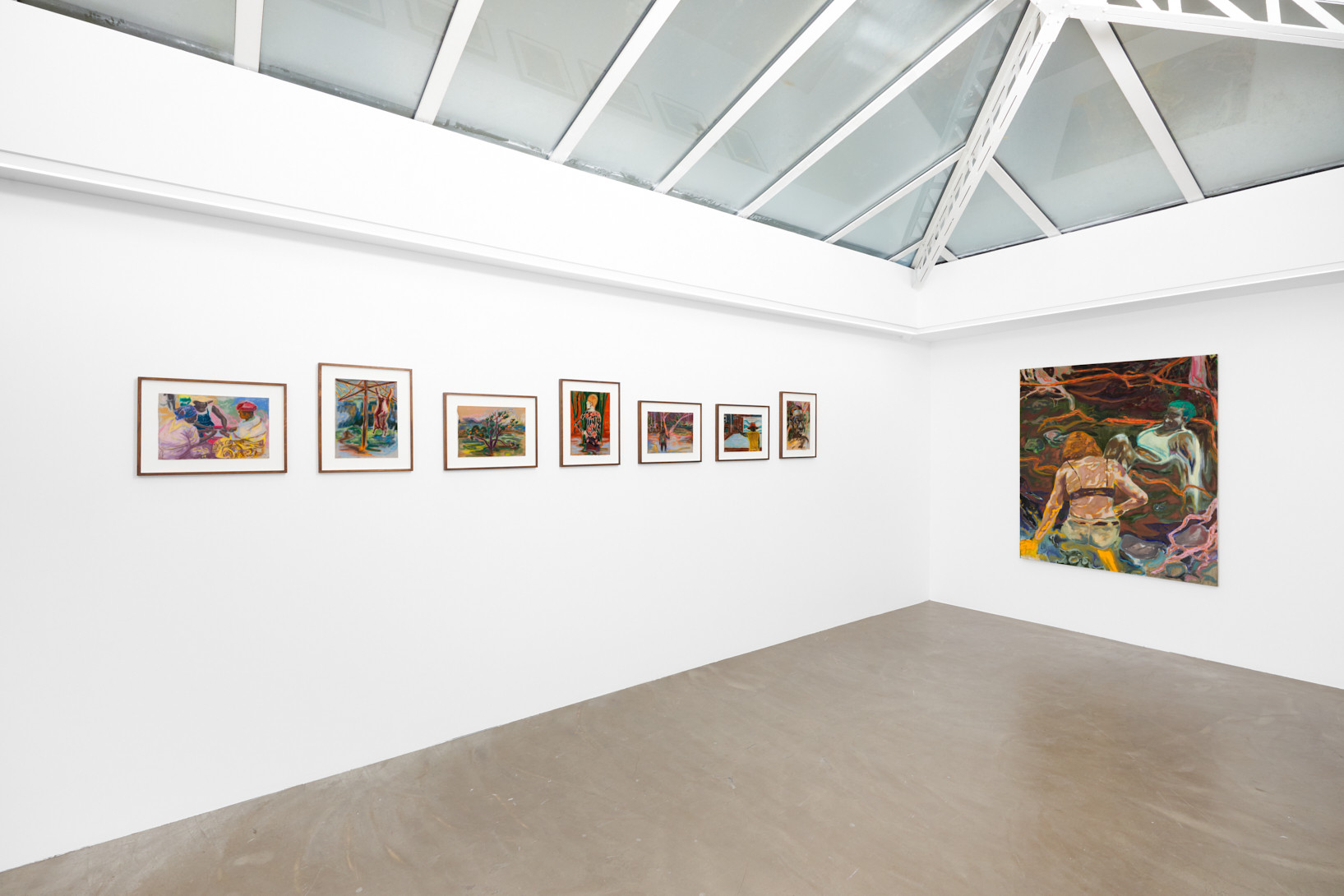
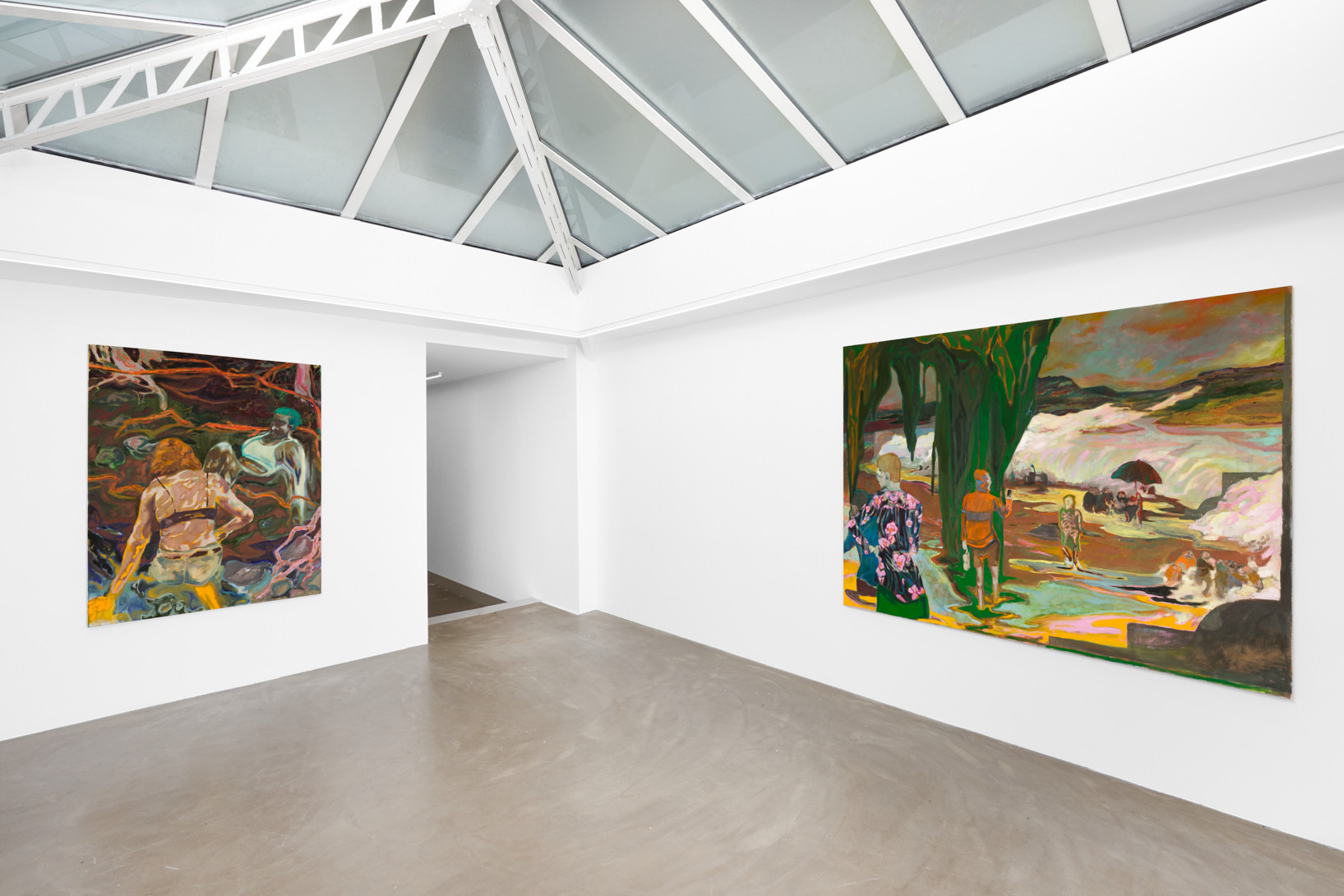
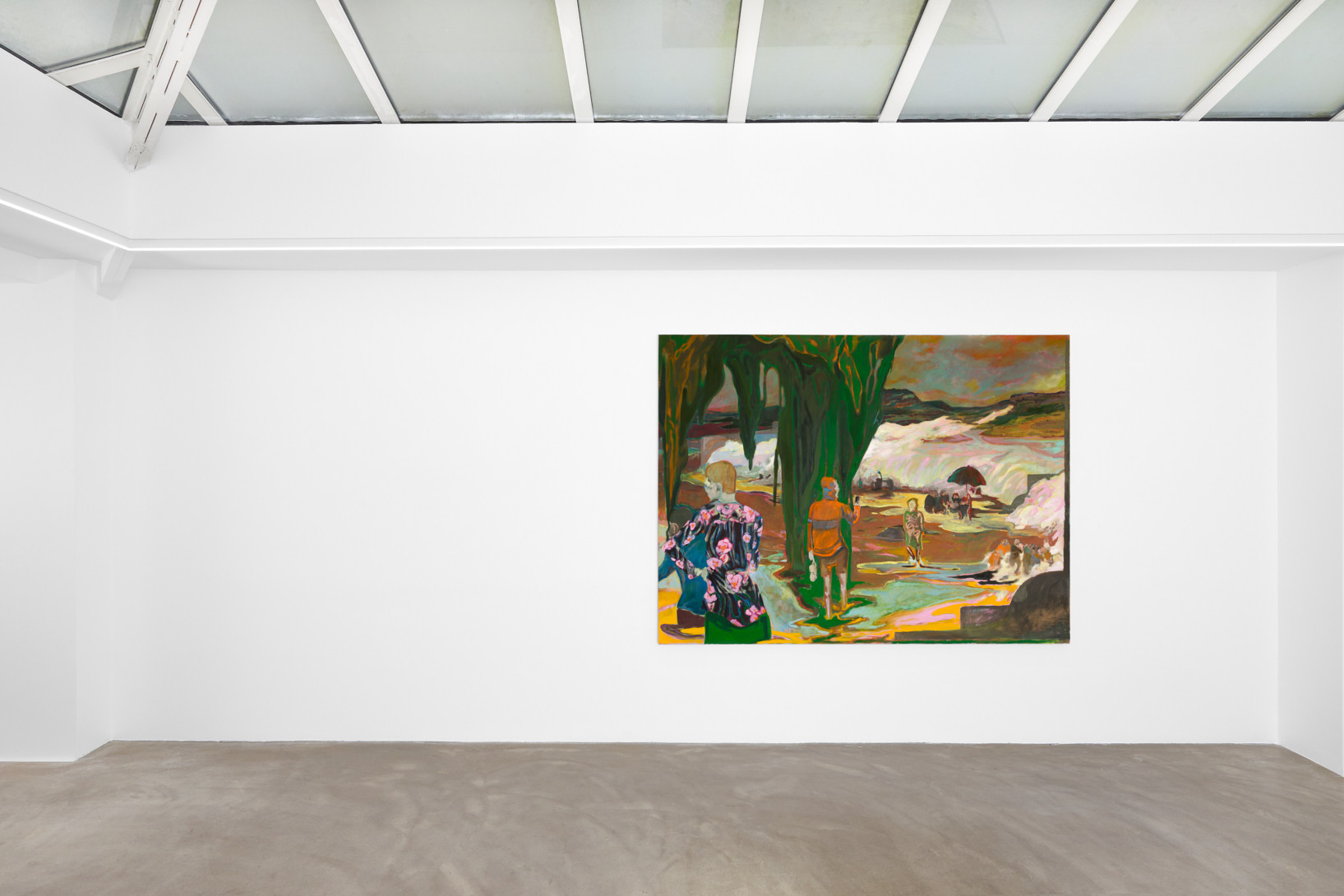
© Credits photo: Thomas Marroni

















cadet capela is pleased to present A Confession of Rain, a solo exhibition of new works by Blake Daniels. The artist presents a group of 8 large scale paintings and a series of small studies on paper which depict atmospheric landscapes and figures, memories of friends and loved ones, largely formed and abstracted through the qualities of color, mark and composition. This is Daniels inaugural solo exhibition in Paris and is accompanied with text written by Mara Hassan.
There was a moment last summer that left me breathless, when I learned all I needed to know of the world in a stuffy, third-floor walk-up. It was that love was to be found, and conjured, anywhere, anywhen. It was watered and budding between two complete strangers before the nightclub, exchanging tips for maximum makeup feminization. It walked alongside us that humid night, flanked by willow trees and shrubbery. The blisters we earned were never not reminders of losing ourselves. Memories. I remember them, and I remember her.
Sometimes, when the evening falls quiet, I lift my shirt and touch the scarred lump of skin just below my left breast; there, she pierced me when she spoke my name with an inflection that felt true. Love was to be found anywhere, anywhen.
I am reminded of moments like these when my eyes rest on Blake’s paintings. A Confession of Rain titles this new gathering of work, crooning en masse someplace in Paris. A body of new paintings, piercing me again and again. The phenomenology of touch translated by way of oil — “Love.” The warmth of a burning, unwavering gaze having scorched canvas — “A Miracle at Utopia Park.” Their dynamic brushwork guides the eye by hand, moving us like drunken ribbons.
Color. They wade through deep color; deep like oil spills and soft like a mother’s stew. They weave locks of ignited amber with billowing wisps of smoke and swaths of forest green — every color licking another. Gestural laps index Daniels’ laborious promises of devotion — “Siphiwe.” Here, we are witnesses to the artist’s memory of their dear friend Siphiwe, either remembering him or never forgetting him. There’s a difference, you know. Siphiwe’s eyes watch me watch him, and I cannot help but understand they’ve watched Daniels, too. The contortion of his body, caught in the midst of a waltz with a large bird. Every brushstroke beckoning, I fall closer.
In “Mogodu Monday or The Leaving Angels from Carletonville,” much like “Death (Here Where the Land Subsides),” people, faces, and places huddle like mounds of memories. Each figure as a mark entangles itself with another. One body and then another; intimate proximity sparking time like colliding flint rocks that spit fire. Moments pile up, one atop the rest — Simone Forti’s “Huddle,” 1961.
Fortunately, change compounds, too; and each memory as a color bleeds into another. Glowing brightly anywhere, anywhen.
I must imagine the memories within these bodies, within these faces, within Daniels. I have no choice. Painterly swirls caressing their visages; a man looks beyond me, a crowd disregards my stare — I am privy to quiet histories in the making. What will follow these people, and what has preceded them, I am never to know. Yet, I’m obliged to watch as their mundane trudges onward into my wonderment.
What is worth admiring is Daniels’ ability to image the palpable and warm sinews of adoration, wonder, and kinship by means of oil and time. What is true is that whatever can be achieved through care is always worthwhile — and they remind us of that.
Mara Hassan